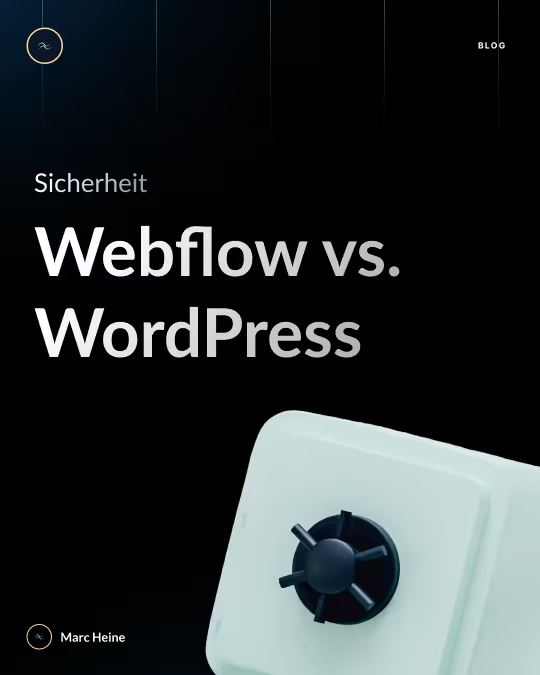
Is your website secure? Or is it a vulnerable target?
In the digital world, the security of your website is of great importance. A hacked website can result in significant financial and reputational damage.
Webflow security
Hosted platform: Webflow is a fully hosted platform, which means it is responsible for keeping its infrastructure secure, including server maintenance, updates, and security patches.
Webflow apps: Official third-party tools are audited to ensure that they are reliable and do not compromise security.
Webflow is hosted on Amazon Web Services (AWS): a highly reliable and scalable cloud infrastructure. In the event of a server crash or downtime, Webflow's hosting on AWS is designed to ensure website continuity and accessibility.
The platform offers dedicated customer support to help users with issues or questions
limited access: Webflow has a closed ecosystem that limits access to core code and infrastructure and reduces the risk of security breaches due to third-party plugins or themes.
SSL encryption: Webflow provides SSL encryption for all websites as standard to ensure secure data transfer between the server and visitors' browsers.
DDoS protection: Webflow uses Distributed Denial of Service (DDoS) protection to prevent and mitigate attacks that attempt to overwhelm the website with traffic.
Wordpress security
Self-hosted: WordPress is a self-hosted platform that requires users to manage their hosting environments. Security measures are based on user actions, including plugin/theme installations, updates, and server configurations.
open-source framework: WordPress' extensive use of third-party plugins and themes can expose websites to security risks if these components aren't updated regularly or come from unreliable sources.
Security plugins: There are various security plugins available for WordPress that offer features such as malware scanning, firewall protection, login security, and more. These plugins can improve website security when properly configured and updated.
Regular updates: WordPress regularly releases updates to fix security gaps and improve overall stability. Users must apply these updates immediately to ensure a secure environment.
comparison
Webflow offers a more closed environment, which reduces the risk of security breaches due to third-party plugins or themes compared to WordPress.
WordPress has a larger user base and extensive third-party support, but this also means a higher potential for security issues caused by poorly coded plugins or themes.
Webflow's hosted platform means that it manages much of the infrastructure security, which can give users who don't want to deal with server-related security tasks peace of mind.
WordPress requires proactive management: Users must remain alert and regularly update WordPress core, themes, and plugins to minimize security risks.
You can try out Webflow for free here:
https://webflow.grsm.io/77zg9e1s3png
to the design subscription from marchdept.
*Affiliate links













